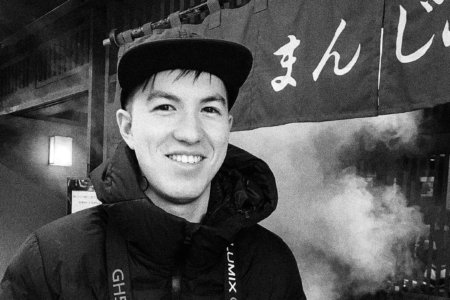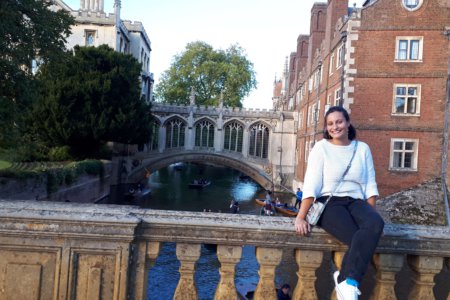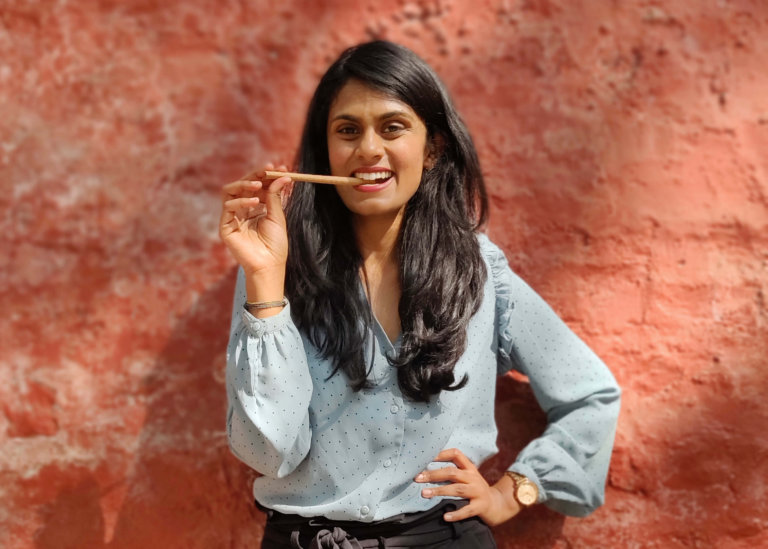
Divya Mohan, an Erasmus Mundus graduate, is making a name for herself in the sustainable food industry. The World’s 50 Best listed the Bangalore native in its list of people shaping the future of gastronomy and Thought For Food’s top 20 food startups.
Why? Straws you can eat. For part of her course at Lund University, she took on the problem of one billion plastic straws being used every single day globally, the seventh-biggest polluter of the ocean today.
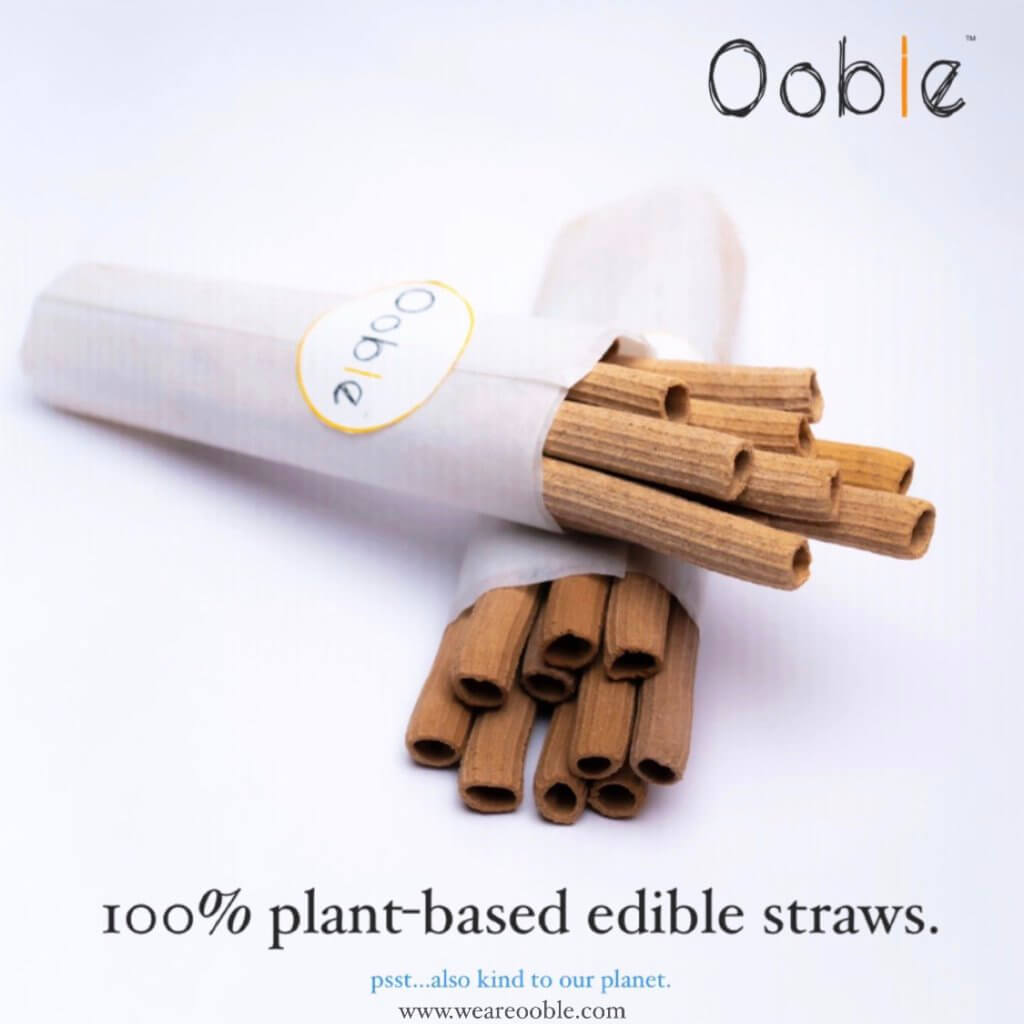
Divya Mohan is tackling the global problem of plastic overconsumption. Source: Divya Mohan
The result is straws made from cereal flours and plant oils. They hold up in liquids for over 45 minutes, are available in chocolate or cinnamon, and does not affect the taste of the drinks they’re in. This is the focus of Mohan’s startup Ooble.
We caught up with Mohan to learn more about Ooble, how she got to study in three European cities during her Erasmus Mundus programme and her future plans:
What made you choose to study biotechnology?
It started off with a peaking interest in biology but I wasn’t ready to let go of my passion for math — something I’ve always liked since young. I wanted to do something that brings the two together which was biotechnology. Back then, five years ago, biotechnology was fairly new and had the potential to be the future. I jumped into it because I enjoyed the biological and mathematical aspects.
Tell us more about Ooble.
It started off as part of my master’s during one of the courses in design thinking. One of the tasks was to find a sustainability gap in the food packaging industry and use design thinking to solve it.
The food packing industry has a lot of problems. One that stood out the most for me (back in 2016) was the Rio de Janeiro Olympics. When they did the beach cleanup, they found that straws were one of the top 10 pollutants.
It seemed a bit shocking because I never thought of straws, being small and insignificant, as a problem. We did a little more research behind it and realised that one billion straws are used every single day on a global scale.
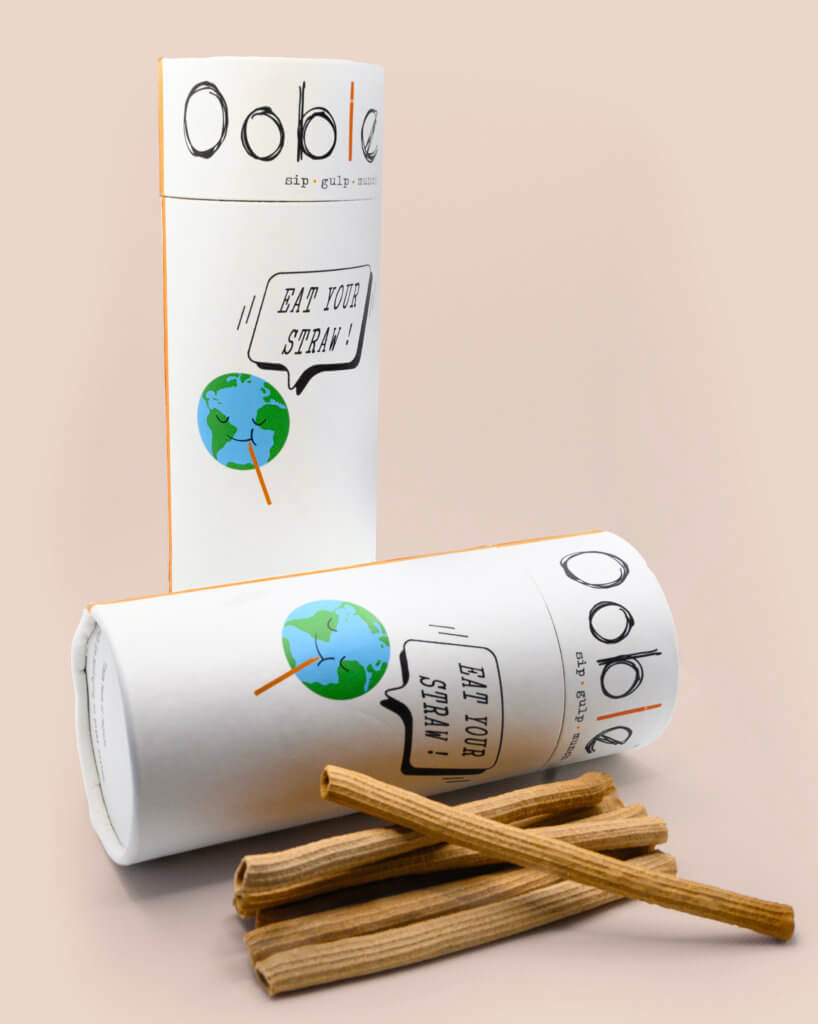
“So as a food technologist, I wondered about being able to eat your straw. After that course, I couldn’t get this project out of my mind,” Divya Mohan says. Source: Divya Mohan
Because of their small size, it’s also difficult to recycle. So we had to tackle this from a design thinking perspective. How and why do people use straws? Always putting the consumer in the centre.
We realised that hygiene and convenience drive this attitude along with no desire to reuse them. The solutions of steel straws, glass straws and bamboo straws were out of the question. Paper straws were not functional as well — they get soggy in the smallest amount of time.
So as a food technologist, I wondered about being able to eat your straw. After that course, I couldn’t get this project out of my mind. I worked at home making prototypes and at the same time enrolling in competitions and programmes for fun.
We started winning competitions like Thought For Food so then we thought maybe this is an idea that can become a business. We then took some handmade straws to Malmo (a city in Sweden) and gave them away for consumer insight. When we got positive feedback, it then became a business solution which was a completely new playing field for me.
What are the straws made out of?
One of the main components is wheat flour combined with other plant flowers and plant oil. They come in different flavours and are also vegan.
These straws are completely biodegradable and compostable. When you put them into a smoothie or shake, they stay intact for more than 35 minutes and can last up to an hour.
What do you envision for Ooble in 10 years?
It’s a learning journey and failure is an opportunity to find new ways to solve problems. I hope to continue to innovate as that’s the value system behind Ooble.
The aim is to always bridge sustainability and innovation in the food industry which is so valuable. More now than ever, where people all over the world are hungry and malnutritioned. We can use our learning to change one thing at a time.
Walk us through your experience under the Erasmus Mundus programme.
During my studies in biotechnology, I had excellent practical training through internships. Especially when I wrote a paper on the research I did on medicines working with plants extracting a certain compound that helps make pesticides that aren’t chemical.
I realised then the impact food had on people. So, for selfish reasons, I wanted to do something in research or work development. Two areas I thought could be relevant was the importance of food and the environment.
Erasmus Mundus was something I didn’t know anything about, it was just something I learnt through Lund University (where I studied). The course I took in Paris was called Food Innovation and Product Design which was exciting going from biotechnology to food specifics.
This course provided me with a holistic understanding of the food industry where I studied food processing. Then at the Dublin Institute of Technology in Ireland, I learnt about culinary arts and the food business.
Then I had the option to choose where I wanted to go next. Italy, to study molecular nutrition? France, to study more processing? I chose Sweden, where I am now, at Lund University to study logistics and innovation within food.
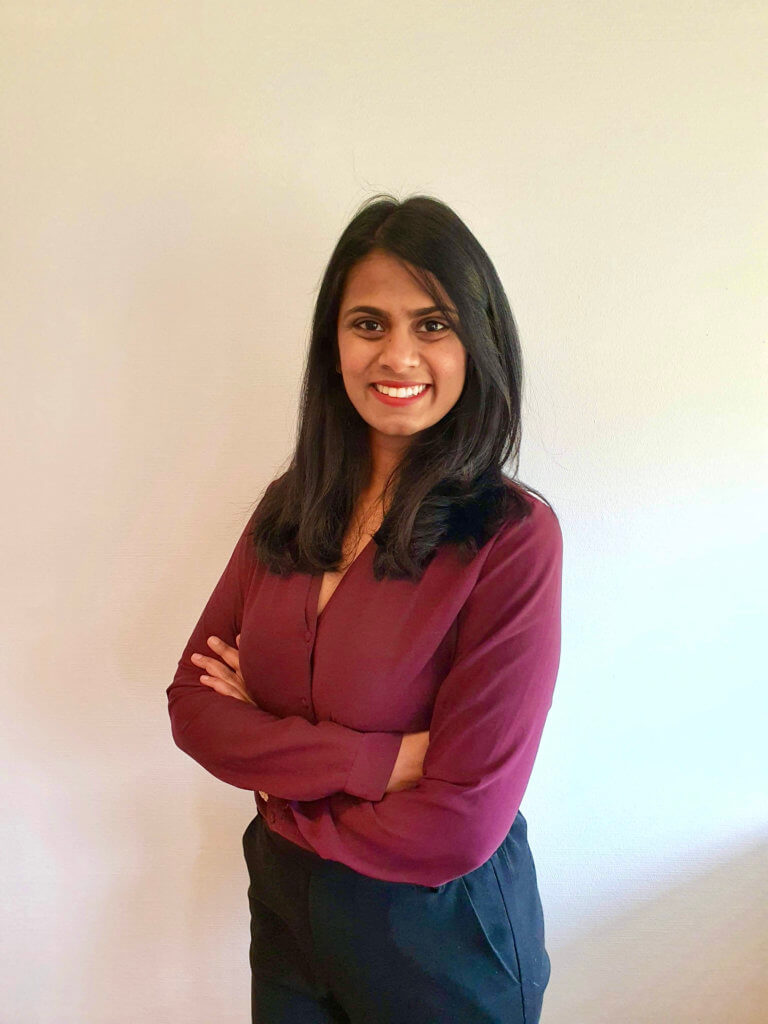
Her journey took her to Paris to learn about food engineering and technology, Dublin for food business creation and consumer behaviour, and finally Sweden for food packaging technology and logistics. Source: Divya Mohan
Sweden is very innovative in terms of its gastronomy and beyond that, the country has amazing talent such as the people behind Skype and the people behind Spotify. Innovation is deeply rooted here especially with food and startups.
What difference do you think it would have made if you studied at a local institution?
If I did this in India, I would 100% be a different person now. This is because a lot of what I grew to become over the past six years of being abroad comes from the experience through my travels.
I don’t know if this is good or bad but it would have been different for sure. Additionally, Erasmus Mundus provides an experience that a normal uni doesn’t. The whole journey of taking your entire life country to country forces you to think differently.
During your time under the Erasmus Mundus programme, what are some skills and knowledge you gained?
One of the biggest learning I had was travelling a lot between countries. Within the Erasmus group, you have people from everywhere in the world.
People with unique personalities from different walks of life. I think I gained personal development where I was able to stop living in a bubble where everyone agreed with me.
I was challenged to change my way of thinking and it made me more of an accepting person. I don’t judge as easily and this helped me with the process of starting a new company.
I questioned myself thoroughly during the first six to eight months of this journey and every person I met taught me something new.
Do you have any advice for students who want to join the Erasmus Mundus programme?
I think it’s a great idea. The master’s programme is all about how much you want to learn so being proactive is key.
Don’t rely on the course to tell you what to do. You need to make sure you’re getting what you want out of the course you’re in.
If your aim is to find a job, don’t wait for the fourth semester. Start from day one. Things like that can help make a difference in your journey to the real world.
Don’t come into the programme with high expectations because the higher they are, the less you’re allowing new experiences to teach you things. Come with an open mind as it’s important to enjoy the process without such expectations.
What are the practical learning elements you learnt at uni that you get to apply now?
Learning to travel light — a good skill to have if you’re into travelling. I learned to let go of things and live more minimally by not attaching myself to materialistic things.
In my master’s for Food Innovation and Product Design, we had to come up with a concept, build a product, develop it all the way to the end and package it. This was my first time and it helped me become a product developer.
I currently work at a company called ADM where I develop probiotic food and beverages so I’m using that thinking process all the time. Not only thinking about the product but making something someone is going to buy an experience. That mindset is important to instill at the beginning.
What do you wish you learnt more during uni?
The foundations and basics of finance which is important to students in any field. It can help how people handle things like learning how to budget while travelling and so on.
Every country has its own tax system so having a basic course on that would have been nice. It’s a question most international students have.
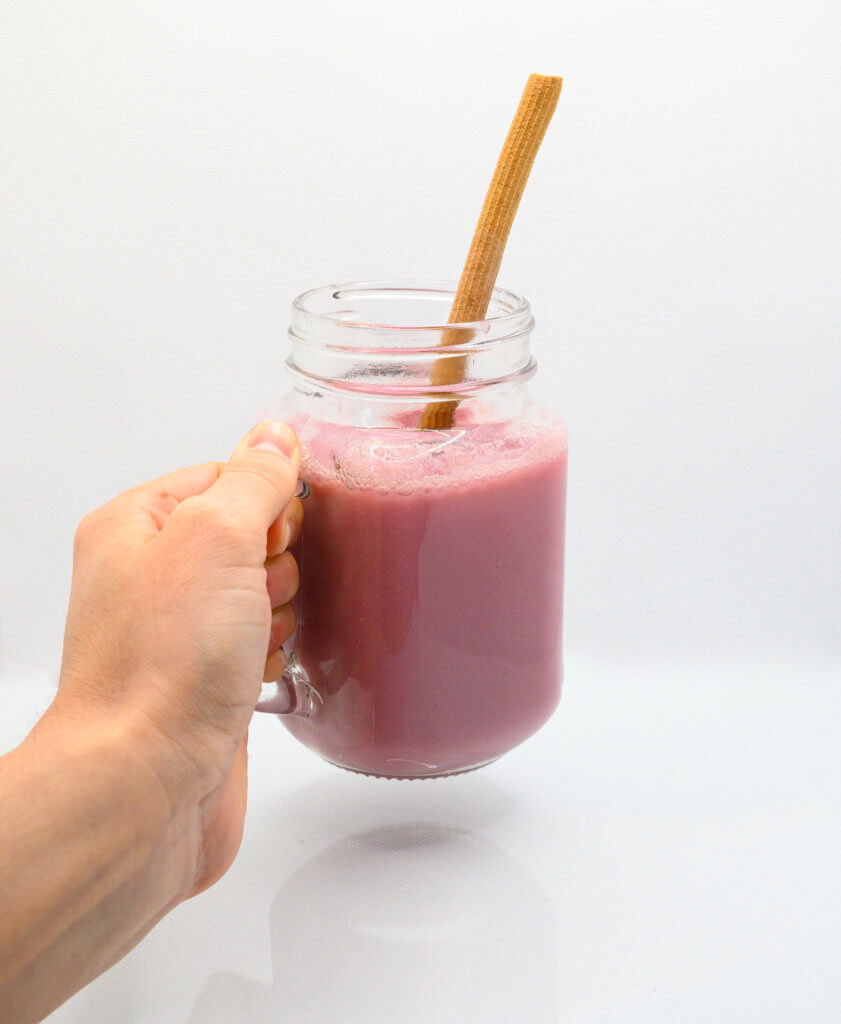
Ooble’s straws are completely biodegradable and compostable. Source: Divya Mohan
What do you miss from home?
I believe it’s a blessing to miss something you enjoy. It’s a good experience. I appreciate the sun a lot more after living in Sweden.
I appreciate the things I took for granted in India. The other things I miss are my family and friends which I keep in contact with through video calls and messaging.
I also learned how to cook. This is important if you miss food from home. Just learn how to make it. Before my student journey, I didn’t know how to cook a single thing (ironic because I’m a food technologist).
Give us your top advice for students to budget their finances abroad:
Depending on the background you come from, the most important thing is to budget early on. Understand what you have for every month and work around that.
Leave an amount for emergency situations, I think it’s important to have at least 20% of your monthly savings for backup. From there, you take into account all the fixed bills such as food, rent and bills.
Having said that, Europe isn’t crazy expensive depending on your choices. If you plan to travel, get your tickets in advance and make sure you go to places where cheap flights are available.
Don’t be afraid to backpack and stay in hostels. Do things that are not expensive and only once you start working can you start splurging. It doesn’t matter what somebody else is doing, choose your own budget and live by those standards. At the end of the day, nobody cares and you’re supposed to make sure you’re comfortable.








